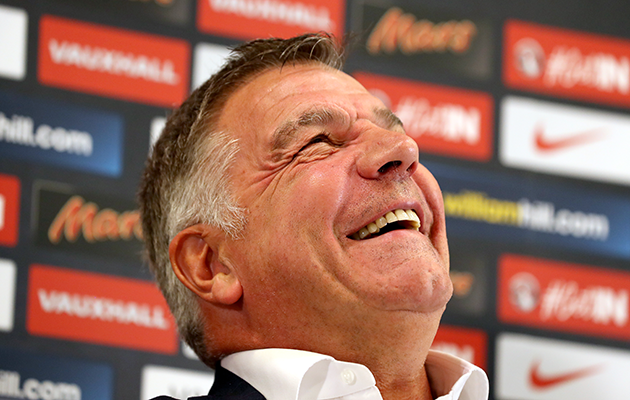Odd that Sam Allardyce should have been accused in some quarters of taking a huge gamble over cancelling England’s proposed friendly at Wembley against Croatia a mere three days before they are due to meet Slovakia in Bratislava in a World Cup qualifier.
Surely the real and fatuous gamble would have been to play that friendly so close to such an important competitive match would be the danger of incurring injuries.
Ecstatic about his elevation to the England role, Allardyce has made some rather odd statements. Asked if England could have won the European title in France, he answered that, yes, he did, had they all performed to their best which they suggested they were going to beforehand. Well, what else could they possibly have suggested? Talk about begging the question and forgive me if I use the phrase in its correct form.
“I thought”, said Sam, “there was some outstanding ability in the team to beat teams. Plenty of goals in the team, we seemed to be able to score one more goal than the opposition. Unfortunately, all that seemed to dry up in the tournament.”
Very polite of Sam. In fact as we all know England found themselves in a blissfully easy qualifying group, in which only the Swiss were any real opposition. And England’s Wembley performances in the friendlies which preceded the Euros were dismal to a degree. Not least against a 10 man Portugal, without Ronaldo, beaten only 1-0 with a desperately late goal.

Better late than never…Niersbach has been banned from football for a year.
Better late than never I suppose. FIFA have at last decided to ban, though only for a year, Wolfgang Niersbach.
Not a moment too soon surely and in fact far too late. Accused of bribery and corruption over the award to Germany of the 2006 World Cup he had already resigned as President of the German Football Federation as long ago as last November. He has now been sanctioned for failing to report potential misconduct until the allegations have been investigated. The belated charge? Failing to report potential misconduct. But why has it taken so long?

Eusebio in action for Portugal against England’s Nobby Stiles in the 1966 World Cup semi-final.
The 50th anniversary of England’s World Cup victory elicits so many memories of Alf Ramsey. “You did it, Alf, “cried a tearful Nobby Stiles at the end of the Final. “We’d have been nothing without you.”
Nobby indeed owed it to Ramsey that he wasn’t dropped from the team after a peculiarly painful foul on the key French attacker, Simon. Ramsey told the FA officials who wanted Stiles out that if Stiles went, so would he. So Stiles stayed to play an exceptional role in the defeat of Portugal in the semi-final, when he shadowed Eusebio.
Ramsey’s “wingless” tactics had its critics then, but four years later in Mexico he got England to the quarter finals and though his tactics against West Germany were open to criticism, it was surely only the wretched luck of the inspired keeper Gordon Banks falling ill on the eve of the Leon quarter final which cost England that game after they had gone 2-0 ahead.
After all those years, I still believe that Banks was deliberately poisoned. He once assured me that he had eaten and drunk the same as every other player.
Peter Bonetti his deputy poor fellow had a wretched game, worried about the behaviour of a wife, staying with others in a nearby hotel, whom he would shortly divorce. But Alf contributed to the defeat with his failure to substitute his two flying full back Keith Newton and Terry Cooper, who ran themselves into expensive exhaustion. But then Alf was never very happy about substitutes.
All political careers end in failure, said the late Enoch Powell, and Alf’s at last disintegrated when, in a subsequent European Nations Cup tie at Wembley he failed to select a tackler in midfield, allowing Gunter Netszer to run riot.
Then in Berlin, in the return, picking a team of hard men wanting nothing better than the useless, goalless draw he got. The whole England team, said Netszer, “has autographed my leg.”







